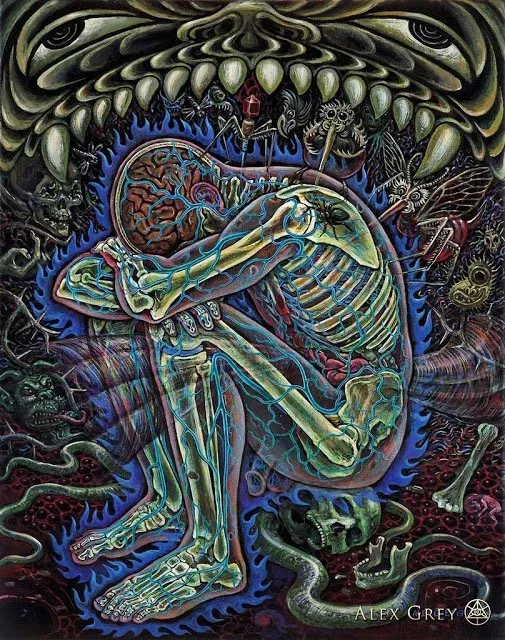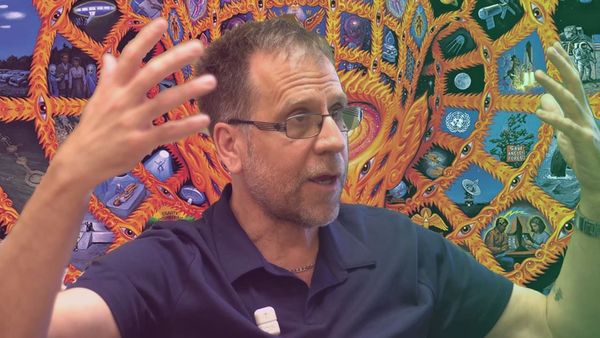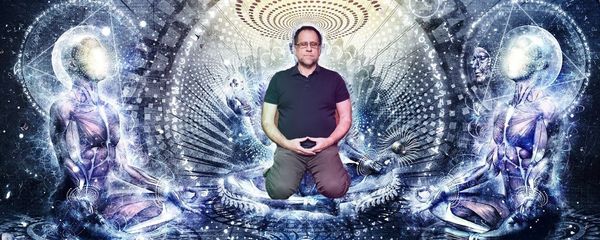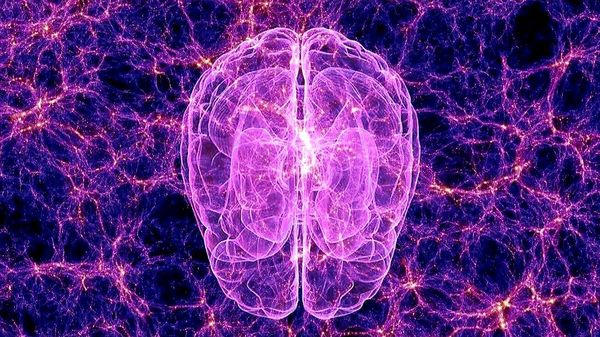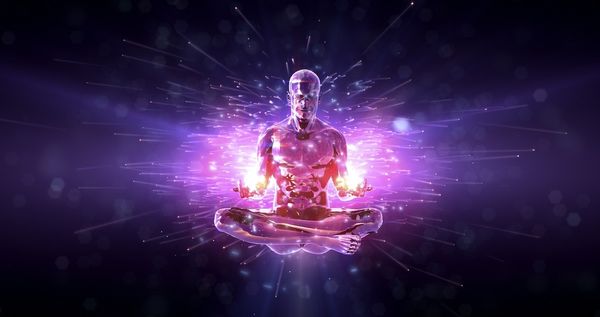Jon Brooks • • 5 min read
What Are the Three Universal Truths From Headspace Monk

Andy Puddicombe dropped out of university at twenty-two and took a trip to India to become a Buddhist monk. Prior to this bold decision, Andy tragically lost a few of his best friends due to a drunk driver and three months later his stepsister due to a sleeping driver.
Andy explains how these terrible losses led him to become a monk:
For a couple of years, I didn’t really know what to do with that stuff. The mind was very busy. It was kind of there in the background, but I didn’t really know how to process it. And I was going out with this girl, and she was talking a lot about Buddhism and stuff. And I wasn’t really massively kind of engaged in those conversations, but at some level, the idea really kind of resonated. You know, not to go and read a book about philosophy or psychology but to actually go and look inside, and kind of actually examine the mind and find out why the mind was unhappy, and why it didn’t feel at ease or at peace. And in that moment it felt like the most natural thing to do in the world. I couldn’t imagine doing anything else.
Andy ended up training as monk for ten years, practicing a variety of Buddhist disciplines and traveling to places such as Russia, Scotland, Australia, and Thailand. He finally ended leaving the monastery, however, but not the Buddhist way of life:
Whilst I was there a lot of lay people, general public, would come along to the meditation center. And I was still in my robes, and the feedback was always the same: This is really beneficial. I really find this useful, but I don’t necessarily relate to the whole kind of Buddhist thing, and look, it’s a bit weird. You’re a man dressed in a skirt… So the more I thought about it, I was kind of like, “So what am I passionate about here? Is it being a monk? or is it teaching meditation?” And it was teaching meditation every time… And I thought that was something useful I could do, so I spoke to my teacher and I made the decision to not leave the robes behind but to kind of dress in a different way.
A few years after “dressing in a different way” Andy co-founded the Headspace app, which now boasts over 6.5 million monthly users. I’m one of them.
In a podcast interview Andy did with Lewis Howes, he was asked what three pieces of wisdom he would leave behind if everything else about him was wiped out of existence. Andy has a knack for taking esoteric spiritual ideas and transforming them into plain English, so I thought I’d share with you the three best gems of life advice Andy provided in the podcast, along with some practical action steps for incorporating the lessons into your everyday life.
So what are the three universal truths?
1. Appreciation for Precious Human Life
It’s so easy to forget that our time is limited, and we live very often with this delusion that we’re going to live forever. We know it intellectually that we won’t, but that’s not the way we live our life.
How to practice appreciation:
Studies have shown that writing down a few things you feel grateful for every night increases life satisfaction, eases anxiety, and improves one’s immune system. You can do this on any old piece of paper, or if you want something a bit more classy, try the Five Minute Journal.
2. Embracing Impermanence
Everything is always changing. Nothing stays the same. So much of our suffering in life comes from trying to hold on to things or being fearful of what might arise in the future. If we recognize that everything is always changing, that everything is always coming and going, then we’re free. There’s a completely different feeling to life.
How to embrace impermanence:
Place an image of skull somewhere in your room and every time you see it remember that you will one day look like that. While this seems like a morbid exercise, it’s actually quite liberating when you let go of the resistance we naturally feel about death. This exercise helps you to remember that everything you own — possessions, self-image, body, opinions, good emotions, bad emotions, relationships — is only yours temporarily. You are always changing. Everything is always changing. You can either fight against the ebb and flow of life or let go and surf the wave of impermanence.
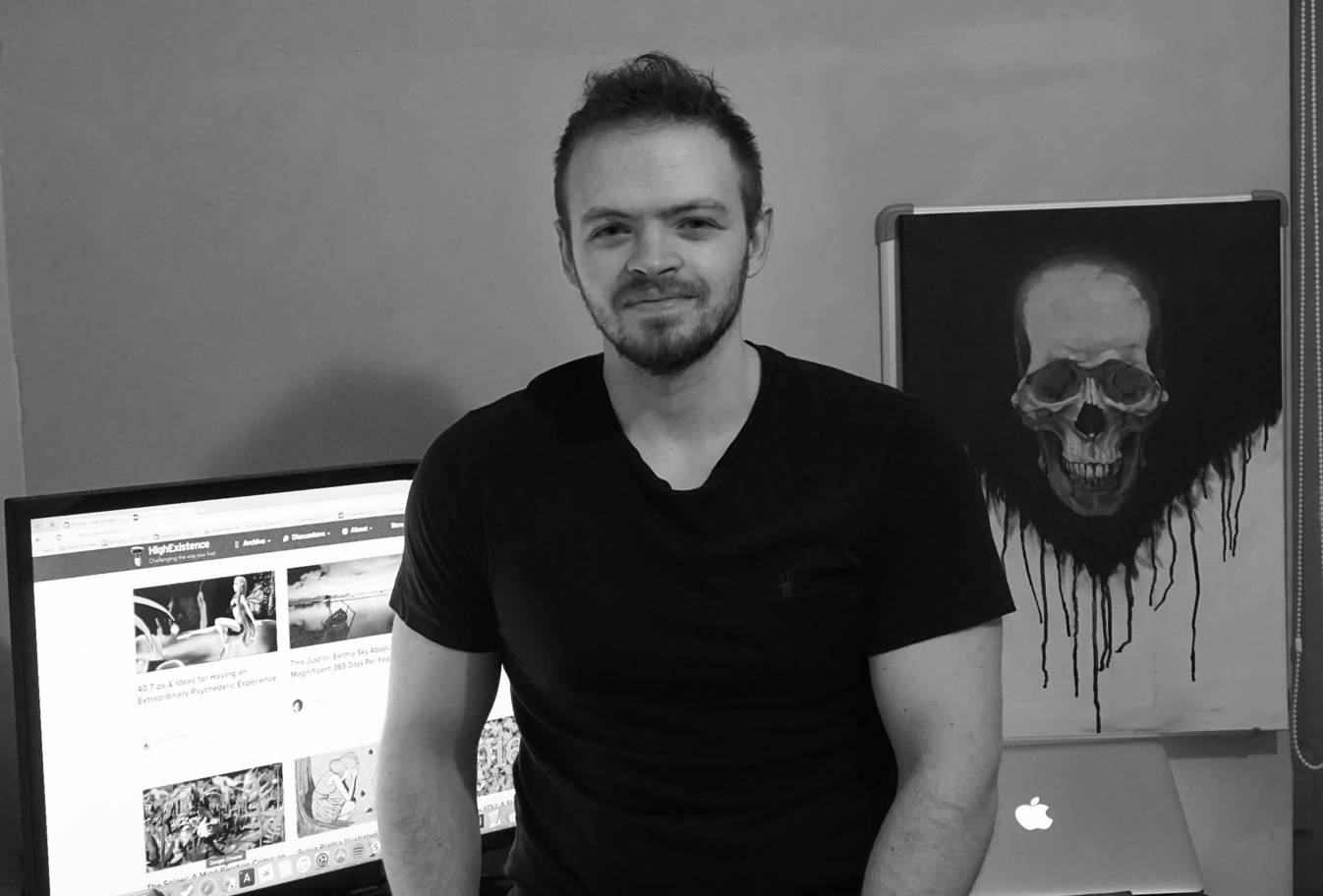
Further reading on embracing impermanence:
2 Simple Buddhist Techniques for Amplifying Positive Feelings and Softening Negative Moods
3. Acceptance
I think we live with this idea that we should always be happy, that everything should always be as we want it to be. That’s not the nature of life. Because of that, we’re always fighting with life. We’re fighting in our mind, fighting outside, labelling, it doesn’t matter. There’s this sense of resisting: we want life to be different from how it is. Life is how it is. And if we can only be okay with that — acceptance — then we live a very different kind of life, we feel very different. To be clear: acceptance doesn’t mean just going with the flow when someone’s doing something very negative. It doesn’t mean just saying, “Oh, okay. I don’t need to do anything.” That’s a very different thing. It’s about, “With those things that we’re unable to change in life, can we be at ease with them?”
How to cultivate acceptance:
Whenever life serves up difficulties, make it a habit to ask yourself this question:
Is this within my control or outside my control?
If there is an obvious way to improve your situation, of course, do so. But as is often the case, if the situation is outside of your control, make the conscious choice to accept it. What’s the alternative?
If you want to hardwire this question into your brain, we’ve created a “Resist Nothing poster” to help you become a little more accepting each day. Check out the poster here.
What are the three universal truths:
- Be grateful for what a sublime opportunity life is
- Realize that everything is always changing, both the good and the bad
- Accept what you cannot control or live a life of unsatisfactoriness
P.S. If you like the ideas in this article, I highly recommend you check out Andy’s book Get Some Headspace, or better yet the audiobook version which he narrates. I’ve listened to it three times. It’s amazing. You can listen to it for free here with an Audible free trial.

Jon Brooks
Jon Brooks is a Stoicism teacher and, crucially, practitioner. His Stoic meditations have accumulated thousands of listens, and he has created his own Stoic training program for modern-day Stoics.

